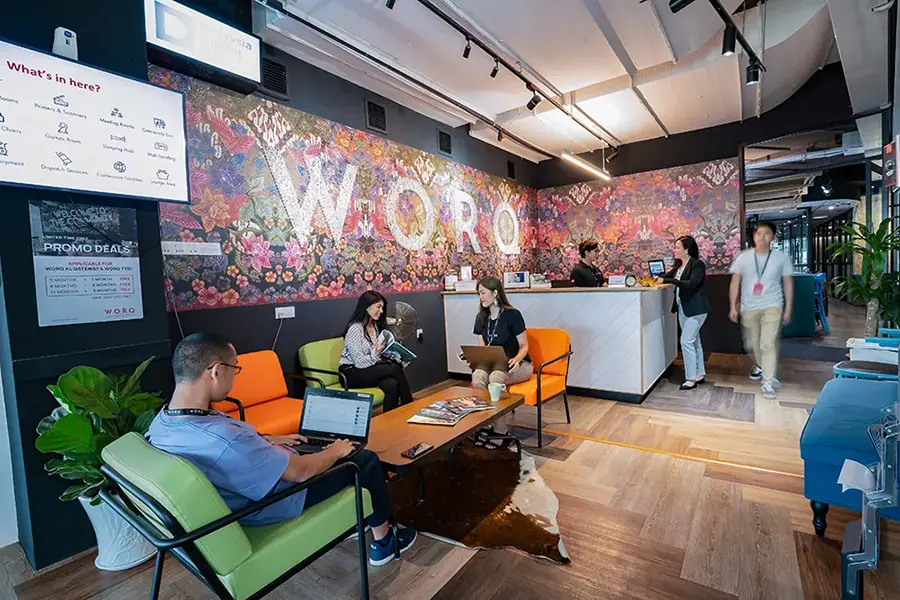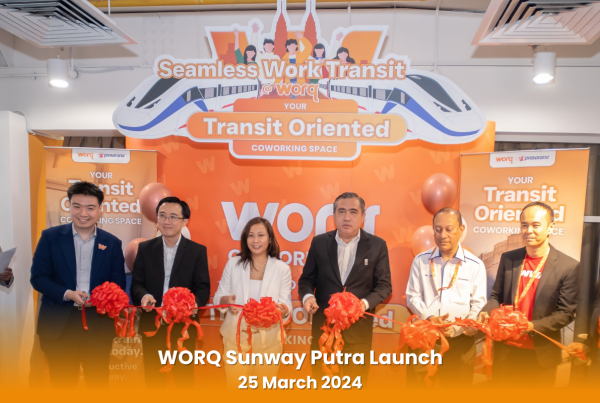Guide to Hiring in Malaysia
Are you an international entity looking to hire in Malaysia?
We have prepared a simple hiring guide with our friends at Globalization Partners for your reference (to ease you through the process).
Malaysia at a Glance
Malaysia is a multiracial Southeast Asia (SEA) country, situated near the Equator line with the geo-coordinates of 4.2105 N, 101.9758 E. Geographically, the country is divided into East Malaysia and West Malaysia (also known as the Peninsula Malaysia) by the South China Sea. According to IMF 2020 data, Malaysia is the 4th largest economy in SEA.

Key facts about Malaysia
| Population: | 32.797,000 people (2020 est.) |
| Capital: | Kuala Lumpur |
| Administrative Centre: | Putrajaya |
| Government: | Parliamentary Democracy with a Federal Constitutional Elective Monarchy |
| Major Languages: | Malay/Bahasa Malaysia (National Language), English (widely used in Business and Education), Mandarin & other Chinese dialects, Indian dialects |
| Currency Exchange Rate: | 1 USD = 4.241 MYR |
| International dialling code: | +60 |
| Local time: | GMT +8 |
Malaysia economy snapshot
Malaysia, the powerhouse of E&E global products

The E&E industry under the manufacturing sector is one of the key contributors to Malaysia’s economy. According to the Q4 2020 report by the Department of Statistics Malaysia, the manufacturing sector contributes 23.6% of Malaysia’s economic share. Despite the challenges due to the Covid-19 pandemic, the E&E industry achieved double-digit growth in 2020. The global demand coming from the information technology infrastructure, smartphones, and cloud computing contribute to the growth of the industry.
Intel and Texas Instruments are examples of global companies that have established local offices in Malaysia. Moreover, six out of the 12 world’s largest semiconductor companies and three out of the nine largest LED companies operate in Malaysia. This proves Malaysia as an E&E product powerhouse with the ability to attract foreign investors and companies to invest in Malaysia.
Malaysian labour force and employment laws
Before hiring in Malaysia or any country, it is important to learn about the local legislation and employment laws. The Employment Act 1955 (EA) is the primary employment law that governs the private sector in Malaysia. It takes care of employees contracted with wages not exceeding RM2,000 per month and related categories stated in the First Schedule of the EA. For employees whose categories do not fall under the EA, the employment relationship will be established by the employment contract or contract of service, subject to the below statutes:
1. The statutes being the Parliament made law or an Act of Parliament.
2. Subsidiary legislation, being the ministerial orders or regulations made under the relevant empowering statutes.
3. Case laws refer to judicial precedents found in the law reports for future similar cases to be treated alike.
>> Read more about the basic guide to employment law in Malaysia, by Chia, Lee & Associates.
Working hours and statutory leave
In general, employees in Malaysia work on a five-day working week (usually Monday to Friday), no more than eight hours a day. A rest day is required for an employee every six working days; the maximum working hours for a week is 48 hours. Extra working hours are subjected to overtime pay (OT), which is 1.5 times an employee’s average pay rate. If employees are required to work during public holidays, they can be paid no less than three times their daily pay rate. All Malaysian employees are entitled to paid vacation time every year and paid days off for public holidays.
| Annual Leave | Tenure of Employment |
| Prorated | Less than 1 year |
| 8 days: | Above 1 year, but less than 2 years |
| 12 days | More than 2 years, but less than 5 years |
| 16 days | More than 5 years |
If an employee falls sick, below are the entitled number of days for sick leave. However, if the employee requires hospitalisation, the total paid sick leave is 60 days per year.
| Sick Leave | Tenure of Employment |
| 14 days | Less than 2 years |
| 18 days | More than 2 years, but less than 5 years |
| 22 days | More than 5 years |
Compensation
Starting from Feb. 1 2020, the minimum wage for Malaysian employees is RM1,200 per month or RM5.29 per hourly rate. This applies to major towns under the 56 city and municipality councils. Apart from that, international companies should also consider the average wage rates for positions based on the industry and the cost of living of the area where they’re hiring.
A 13th-month bonus is not a legal requirement in Malaysia, and companies may pay out bonuses according to the employee’s performance. Either it’s a 13-month bonus or a performance-based bonus — you should spell this out in the offer letter and the employment contract.
Taxes and social security
Malaysian employees are subject to income tax, Employment Provident Fund (EPF) (minimum 9%), and SOCSO payment (depending on the employee’s salary). The income tax payment for Malaysian employees varies from 0-30%, depending on the annual income bracket. Employees who require Trade Union subscription fees or PTPTN loan repayment can request this by writing and submitting the necessary forms for the employer. Employers will need to take note and include the deduction from the employees’ paycheck.
For employers, other than deducting the employee’s contribution, such as Schedular Tax Deduction (PCB), EPF, and Social Security (SOCSO), you are required to contribute to SOCSO (amount depending on the employee salary) and 12% or 13% of the employee’s salary to EPF. Employers must also contribute to the Employment Insurance System for employees who do not qualify for the invalidity Pension Scheme,
Hiring practice in Malaysia

Now that you have a broad idea of the Malaysian market, you may want to hire someone in Malaysia to test your business viability in the local market. To start hiring in Malaysia, you will need to register your company in Malaysia. This can be in the form of a branch or subsidiary office.
>> Read more on how to set up a subsidiary in Malaysia.
After you have set up your entity in Malaysia, you can now start hiring! Below are the five steps to the hiring process for your reference.
Step 1: Advertise job positions
You may start by preparing a job description and listing the qualifications required for the job. The common online job portals frequented by Malaysian talents include LinkedIn, JobStreet, WOBB, adnexio, and many more.
Step 2: Review applications and narrow down the list
Your recruiting agency or your internal hiring committee will filter through the incoming applications and shortlist qualified applicants.
Step 3: Interview the most qualified applicants
Interviews can be conducted face –to face or via video call. A face-to-face interview will require you to fly into Malaysia, whereas a video call can be done from anywhere and still allows you to analyze visual cues and interact with the candidate to gauge whether the applicant is suitable for the role.
Step 4: Send offer letters and employment contracts
Once you have decided on the ideal candidate, you may send out the offer letter while preparing for the employment contract. In Malaysia, you are required to have a written employment contract in place if you plan to hire someone for more than a month. Ensure the contract abides by the Employment Act, including a termination clause and stating the salary in Malaysian ringgit.
You may begin the background check and negotiation discussions with the job candidate during this stage.
Step 5: Onboard the new hire
Each company has its onboarding process to ensure a smooth integration of the new hire with the company and culture. However, there are few essential steps that you should take note of, such as paperwork to establish payroll and how to add the new hire to your internal systems. This is also when you can provide onboarding briefing and training sessions to prepare the new hire for his or her first day performing the job responsibilities.
Partner with a global employment platform for initial market exploration and hiring
A global employment platform takes over HR responsibilities, including payroll enrollment, benefits package negotiations, and compliance with Malaysian legislation. This allows you to test the market in the fastest way before investing in setting up a local office.
Expand worldwide with Globalization Partners
Globalization Partners is a global employment platform with a worldwide presence in over 187 countries.
For companies to compliantly hire team members in countries where they don’t have an established presence, they must set up a business entity. This involves a range of complex tasks, such as attaining all the legally required licensing according to local laws, establishing local payroll, and managing labour regulations and HR responsibilities. Globalization Partners’ end-to-end global employment platform can alleviate this burden so companies can focus on more important matters, like growing their teams and scaling new markets.
As you expand into international markets, work with Globalization Partners to hire anyone, anywhere, quickly, and easily. As a global employment platform, our comprehensive AI-driven technology enables us to handle the logistical labour of team building. That way, you can save time and focus your attention on more urgent goals. Take a tour of the platform to explore its features and benefits today.
Get productive by working from a Malaysia Digital Hub
Once you’ve successfully expanded your company into Malaysia, you must ask yourself how to enrich the employee experience. For example, you can choose to have everyone work from home or set up your own office.
The Malaysian government launched the “Malaysia Digital Hub” program in 2017 through Malaysia’s ICT custodian: Malaysia Digital Economy Corporation (MDEC). This is one of the government initiatives to provide a base for attracting local and international tech talent to start, grow, and expand their tech business in Malaysia.
Malaysia Digital Hubs are coworking spaces that meet the criteria for providing high-speed broadband and fibre optic connectivity. These hubs provide access to government and private fundings, facilitation opportunities, and intellectual property protection that benefits the community.
The benefits of setting up your office with WORQ
WORQ is a coworking space for networking and collaborating with individuals from different backgrounds such as entrepreneurs, investors, MNCs, and more. All of WORQ outlets are recognised as a Digital Hub by MDEC. We believe in creating a productive environment and community for individuals and businesses to achieve greater results by helping each other. Our mission to bring new opportunities and foster meaningful connections is what a Malaysia Digital Hub is all about.

What does that mean to you and your business?
1. Affordable Flexi-workspace with business amenities
2. Easy hiring of international tech talents with working visas under the Malaysia Tech Entrepreneur Programme (MTEP)
3. The opportunity to exchange market knowledge and learn from local entrepreneurs
4. Access to the 1,000+ resources and exclusive partner deals that WORQ has with its other partners to take care of the wellbeing of your employees while helping your business grow.
>> Read more about the benefits of starting your Malaysia journey in a Malaysia Digital Hub.
Start off on the right foot with the right partner
We hope that the above guide streamlines your global growth into the Malaysia market. Malaysia’s talent pool is known internationally as being comprised of multi-linguist, many of whom speak English, due to the diverse population. It is also one of the countries in the region with high literacy rates. Furthermore, Malaysia has a dynamic business environment with supportive government initiatives to encourage investors and businesses to enter Malaysia.
Hire international tech talents by becoming WORQ community member





